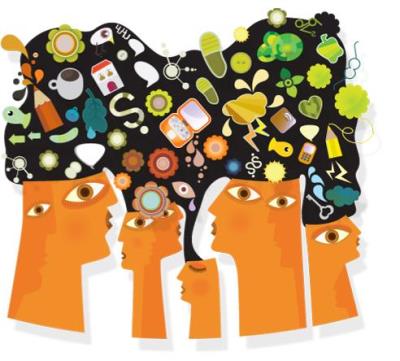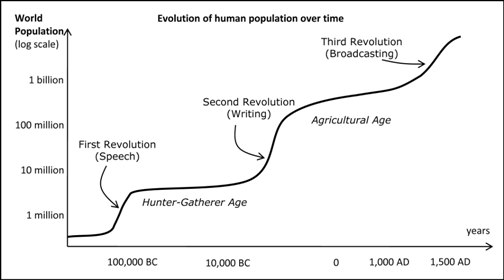“The chief advantage of language is not communication but autogeneration“, says Kevin Kelly in his book ‘What Technology Wants‘. “Language is a trick that allows the mind to question itself; a magic mirror that reveals to the mind what the mind thinks; a handle that turns a mind into a tool. With a grip on the slippery, aimless activity of self-awareness and self-reference, language can harness a mind into a fountain of new ideas.”
 Language allows us to create new ideas. Without language our own creative capabilities are limited. Putting words on things and concepts allows us to modify our views: shifting words does shift worldviews.
Language allows us to create new ideas. Without language our own creative capabilities are limited. Putting words on things and concepts allows us to modify our views: shifting words does shift worldviews.
In addition, Kevin Kelly in this quote misses the view that language allows to mobilize the ideas and the creativity of many people at the same time. Brainstorming techniques demonstrate clearly the power of group creativity.
Hence language (which in our framework did create the First Revolution which brought us to the hunter-gatherer state) is a key part of creativity. Without language we cannot conceptualize, we cannot generalize, we cannot categorize and we cannot shift our views.
No wonder that one of the key benefits of speaking several languages is enhanced creativity and a great flexibility when facing diverse situations!



